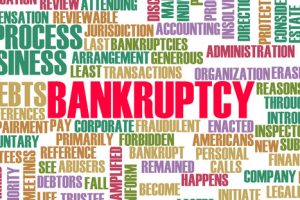Six Dischargeable Debts In An Illinois Bankruptcy

Many people file a Chapter 7 or Chapter 13 debt relief petition to gain immediate relief from foreclosure, lawsuits, repossession, and other adverse action. While the case is pending, moneylenders can do none of these things, at least in most cases.
Many other people file bankruptcy because the debt discharge gives them a fresh start. Here are the most common dischargeable debts.
Medical Bills
Outstanding medical bills are the number one cause of consumer bankruptcy, according to most experts. Even if the family has medical insurance, copays, out-of-pocket maximums, and 80-20 coverage is nearly always enough to cause financial duress. That usually triggers a snowball effect, since money that used to go to other bills goes to medical expenses instead. Since medical bills involve only a forced promise to pay, they are also the leading kind of dischargeable debt.
Credit Cards
In 2005, moneylenders exploited the myth of the credit card bankruptcy to push through a major reform law that hurt consumers. There is no doubt that some people charge luxury items on their credit cards and then adamantly refuse to pay the bills. But it’s also true that there is often a significant gap between wage growth and inflation in Chicago. They must make up the difference somewhere, and the funds often come from credit cards.
Small Business Association Loans
In their first few years, a majority of new businesses either fail outright or fall well short of profitability expectations. In either case, repaying an SBA loan or line of credit can be a major hardship. These loans are normally dischargeable in either a Chapter 7 or Chapter 13 bankruptcy in Indiana. However, these individuals may have a hard time borrowing more money from the government in the future, because bankruptcy only eliminates the legal obligation to repay the debt and not the debt itself.
Income Taxes
Similarly, if a taxing authority has already filed a lien due to delinquent taxes, a bankruptcy will not eliminate such a lien. However, bankruptcy does eliminate past-due income taxes if:
- – Returns have been on file for at least two years,
- – Debt is at least three years old, and
- – Taxing authority has not assessed the debt in the last 240 days.
In plain English, that last element means that the taxing authority has not sent a collections notice in the last nine months, at least in most cases.
Payday Loans
To dissuade their Illinois customers from filing bankruptcy, many payday lenders insist that their loans are secured because they are attached to a checking account. But that’s simply not true. These loans are completely unsecured and therefore 100 percent dischargeable. As a precaution, many attorneys suggest that their clients close the account related to the payday loan once the petition is on file.
Home Equity Line Of Credit
These debts may be unsecured, if the home no longer has sufficient value to secure both the senior debt (mortgage loan) and the junior debt (HELOC). So, if Harry Homeowner has a $200,000 mortgage and a $10,000 HELOC but his Chicago house is only worth $200,000, an attorney can legitimately argue that the HELOC is unsecured.
Reach Out to Experienced Attorneys
Almost all unsecured debts are dischargeable in bankruptcy. For a free consultation with an experienced bankruptcy attorney in Chicago, contact the Bentz Holguin Law Firm, LLC. We routinely handle cases in both Illinois and Indiana.
Resource:
cnbc.com/id/100840148


